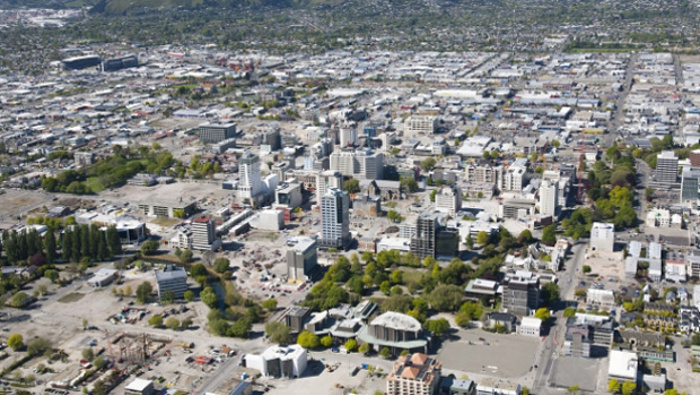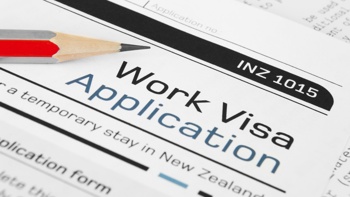If you’re a Christchurch ratepayer, how do you fancy the idea of your rates going up by 70 percent over the next nine years?
That’s what the city council is grappling with and it’s just been advised that it should think about selling off some of its assets - because a 70 percent increase just isn’t sustainable.
That’s in a report that’s been done for the Council by an outfit called Northington Partners - which is an independent investment bank which gives advice to organisations like the council.
Not that you need to be a big financial brain to come to the conclusion that rates going up 70 percent over nine years isn’t sustainable - we could all tell the council that. But that’s what it’s been told by the big brains at Northingtons.
And so they’ve said to the council, you need to do something - you’re sitting on a truckload of assets with six trading companies, which Christchurch City Holdings looks after on behalf of the Council.
Yes, that Christchurch City Holdings that’s had all the issues recently with its short-serving chief executive. My understanding, though, is that this piece of advice from Northingtons has nothing to do with the chief executive debacle, but is more of a long-term view as to how the council might make better use of its assets.
And those assets are Christchurch International Airport, Lyttelton Port Company, Orion Energy, Citycare, Enable Broadband and Eco-Central Recycling.
It doesn’t own all of them outright. It’s got a 75 percent stake in the airport and 89 percent of Orion. But the rest, it owns the lot.
You might remember the council tried to sell CityCare back in 2016 and went to the market, but then decided not to sell. Which was the council’s politely pulling the plug after it didn’t get the offer it wanted.
It thought about selling assets earlier than that too when it was dealing with the insurance debacle after the earthquakes, when the penny dropped that it was woefully underinsured and needed some cash.
That didn’t go anywhere - but it’s why Deputy Mayor Pauline Cotter is saying today that she’s feeling a bit of deja vu with this latest idea that the council sell some of its assets to raise some cash and avoid hitting us ratepayers with huge rates increases.
And I think it’s fair to describe a 70 percent increase over nine years pretty huge, don’t you?
Pauline Cotter is one councillor who’s saying that she needs convincing on this one - pointing out that the city council has weathered storms before without selling assets.
Not that this is going to happen overnight. Tomorrow, councillors will meet to consider the recommendation and decide whether they want to take it further. If they say yes, let’s look into it, it’s likely to be another 18 months before any of its companies would actually go on the market.
And I gather we wouldn’t be looking at complete sell-offs. Partial sell-offs are more likely. And, as it’s being reported today for example, if the Council decided to keep just a 51 percent stake in each of the companies - it could expect to gain about $1.2 billion to reduce debt and invest in other assets.
My understanding, in relation to investing in other assets, is that the Christchurch City Council could, for example, invest in another port somewhere else around New Zealand that it thinks would be a good bet.
Another example would be Auckland Airport. Mayor Wayne Brown is talking about selling $2 billion worth of council shares in Auckland Airport, isn’t he? So if the Christchurch City Council sold some of its stakes in our airport, it could put money into Auckland Airport.
Which I actually think is an idea well worth considering.
The problem I have with asset sales, though - particularly if you do it to avoid rates increases, is that once the asset or the stake in the asset is sold, that’s it. The council could probably buy it back at some stage, but you’d end up paying more than you sold it for. And who knows what future pressures there are going to be that will push rates further north?
But I’d be a big fan of the Council being a bit more strategic with its investments. It’s a numbers thing. Over the past 10 years, its companies have provided a capital return of 7.8 percent. Which the people at Northington who have done this report describe as a “reasonable return” - that’s because the 7.8 is a bit less than the 8.6 percent capital return that the stock exchange has delivered over that time.
The more important figure for me, though, is projected future dividends - and it’s being reported today that the Council could expect a return of investment of less than 2 percent. Which kind of makes you wonder whether there might be any takers if the Council does decide to sell.
But for me - I think a partial sell-off definitely needs to happen. For several reasons. For starters, something has to be done to avoid rates going up 70 percent over the next nine years. If they’re looking at a 2 percent return on investment - there have to be better options out there to put our money into; and we have to get over this parochial, old hat idea that we must own a hundred percent of everything.
Take your Radio, Podcasts and Music with you










